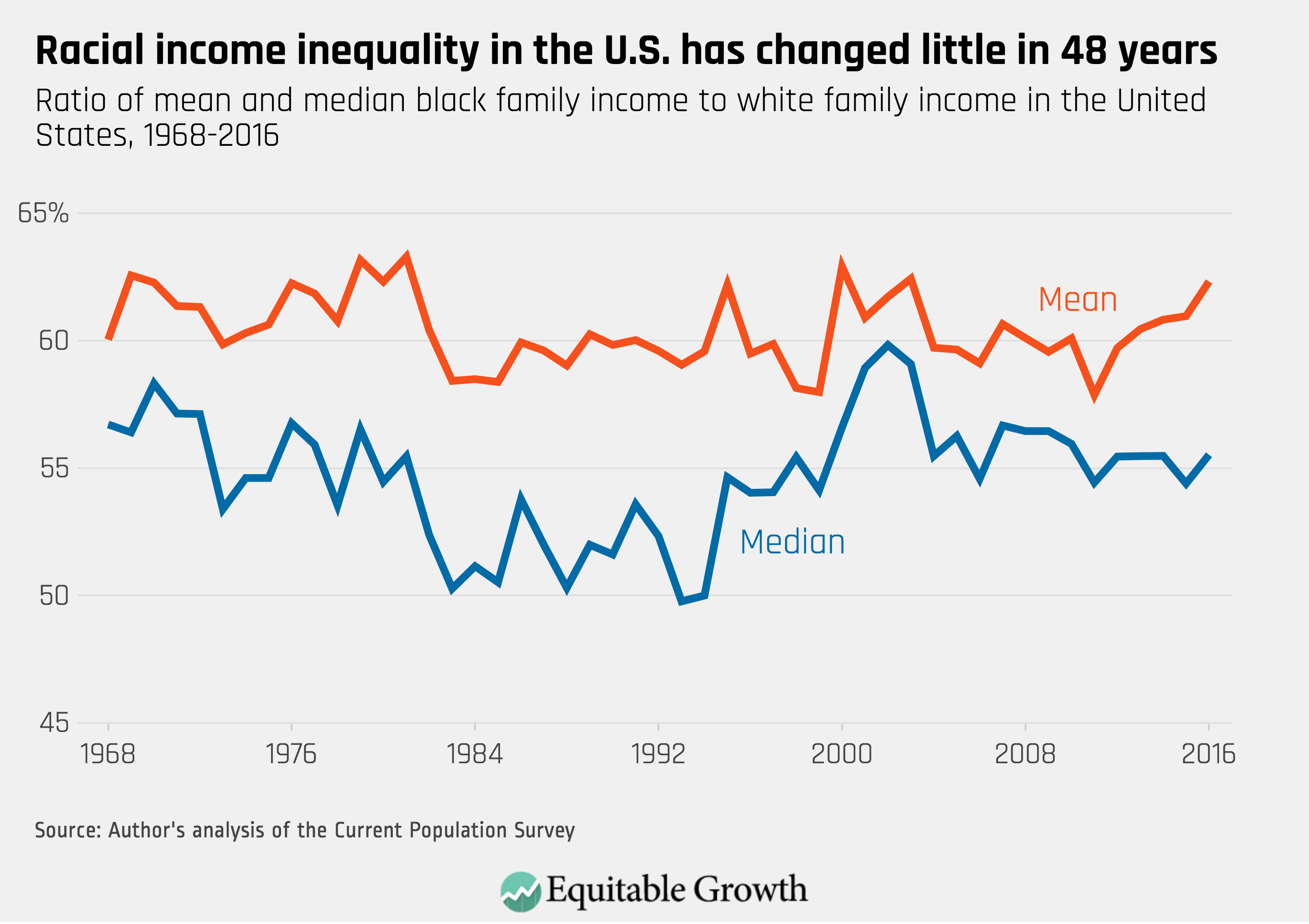Weekend reading: “Mind the gap” edition
This is a weekly post we publish on Fridays with links to articles that touch on economic inequality and growth. The first section is a round-up of what Equitable Growth published this week and the second is the work we’re highlighting from elsewhere. We won’t be the first to share these articles, but we hope by taking a look back at the whole week, we can put them in context.
Equitable Growth round-up
Equitable Growth released comments to the Federal Trade Commission regarding the agency’s proposed hearings on 11 broad-based topics related to competition. Equitable Growth’s comments identify three overarching questions: whether monopoly power is prevalent in the U.S. economy; if antitrust laws have balanced the benefits and costs of deterring anticompetitive conducts; and whether the FTC has the resources to fulfill its competition mission.
Delaney Crampton wrote a value added blog post this week reflecting on conference panels on broadband access that took place at the annual Netroots Nation gathering in New Orleans. The piece examined the effects that limited broadband access has on low-income and rural communities, and how accessibility to high-quality broadband resulted in lower unemployment and higher wages.
Guest author Robert Manduca examined how racial economic inequality remains an undeniable part of American life. Manduca discusses how the family income gap between whites and blacks remains virtually unchanged from the 1960s and demonstrate how economic inequality and racial inequality are fundamentally intertwined.
Links from around the web
Unemployment is reaching historic lows in the U.S. economy, yet pay remains stagnant even as demand for skilled labor is reaching a pinnacle. Steve Matthews, Matthew Boesler, and Jeanna Smialek shed light on this issue by interviewing employers across construction, long-haul trucking, and childcare industries, finding that impediments keeping wages from growing are diverse and often are hard to change. (Bloomberg Businessweek)
Asian Americans are the most economically divided racial or ethnic group in the country, according to new analysis of U.S. Census Bureau data. Adeel Hassan and Audrey Carlsen discuss how the number of Asians living in poverty has grown by 44 percent at the same time that Asian Americans have become the highest-earning group in the nation. (NYT)
Rachel Premack discusses how a woman’s birth place and where she lives as an adult largely determine her future income, promotions, and how early she marries or has a baby—regardless of where she ends up living during these periods of her life. Premack notes that women from the Southeast and Appalachia were disproportionately affected by sexism from their home states later into their careers than those from New England, the West Coast, and the Upper Midwest. (Business Insider)
Alexis Gravely examines how the benefits from the Tax Cuts and Jobs Act of 2017 not only are accruing mostly to the wealthy but also are trending to favor whites over minorities. As the cuts become less generous for low-income individuals once individual cuts expire, minorities will be affected far more than whites, especially due to the repeal of the Affordable Care Act’s individual mandate. (Pubic Integrity)
Executive pay has increased by nearly 1,000 percent over the past four decades while income for the average American has grown by just 11 percent. Andres Melin argues, however, that workers are more frustrated by the 20 percent wage difference that persists between men and women in the workplace and by how women continue to be shut out from the highest-paying jobs. (Bloomberg Businessweek)
Friday figure

Figure is from “How rising U.S. income inequality exacerbates racial economic disparities.”

